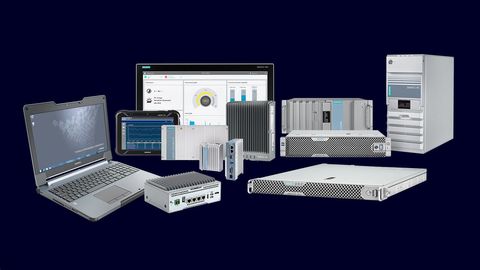Traditionally, HR teams managed these responsibilities through manual paperwork, spreadsheets, and fragmented systems. However, as businesses expanded and workforces grew more diverse, the need for centralized solutions became clear. This gave rise to HR software solutions that automate repetitive tasks, provide real-time insights, and help organizations manage employees more effectively.

Today, HR software is not just a tool for administrative work—it plays a strategic role in employee satisfaction, productivity, and long-term business growth.
Importance – Why HR Software Matters Today
HR software solutions matter because they address several challenges faced by businesses:
-
Efficiency: Automates payroll, leave requests, and compliance reporting.
-
Employee Experience: Provides self-service portals for employees to check pay slips, request time off, and update information.
-
Scalability: Supports growing teams across multiple locations.
-
Data-Driven Decisions: Offers analytics on employee performance, retention, and recruitment.
-
Compliance Management: Reduces risks of non-compliance with labor laws.
For small businesses, HR software helps streamline hiring and payroll with limited resources. For medium and large enterprises, it ensures smooth operations across departments and countries. Ultimately, it supports both employers and employees by reducing workload and improving transparency.
Recent Updates – HR Software Trends in 2024–2025
The HR technology market has seen notable changes in the last year:
-
AI-Powered Recruitment (2024): Many platforms now include AI-driven tools for resume screening, candidate matching, and automated interview scheduling.
-
Remote Workforce Tools: With hybrid and remote work models continuing into 2025, HR software now integrates with collaboration tools like Zoom, Slack, and Teams.
-
Employee Well-being Features: Wellness tracking, mental health resources, and burnout detection are being built into HR solutions.
-
Cloud Adoption: More businesses are shifting to cloud-based HR platforms for flexibility and scalability.
-
Global Expansion: Multi-currency payroll and localized compliance features are now standard in global HR software.
| HR Technology Trend | Impact on Businesses 2024–2025 |
|---|---|
| AI recruitment tools | Faster hiring and reduced bias |
| Cloud HR platforms | Cost efficiency and flexibility |
| Employee wellness add-ons | Higher retention and engagement |
| Data-driven analytics | Smarter workforce planning |
Laws or Policies – HR Compliance Considerations
HR software must align with labor laws, tax regulations, and data privacy rules in different regions. Key examples include:
-
Data Privacy: In the EU, GDPR requires employee data protection. In other regions, local data privacy laws apply.
-
Labor Regulations: Countries enforce rules on minimum wage, working hours, and overtime payments, which HR systems must comply with.
-
Taxation: Payroll modules must be updated with local tax laws (e.g., U.S. IRS guidelines, India’s Income Tax Act).
-
Workplace Equity: Many governments have policies promoting equal pay and diversity tracking, which HR software helps monitor.
Businesses should ensure their chosen HR solution includes compliance management tools tailored to the country where employees are based.
Tools and Resources – Helpful HR Software Solutions
Several tools and platforms are available to help organizations improve HR functions:
-
BambooHR – Focused on small and medium businesses with employee self-service and performance tracking.
-
Workday – A cloud-based HR and financial management platform for enterprises.
-
Zoho People – Flexible HR software for payroll, leave, and attendance management.
-
Gusto – Payroll and benefits management tool popular among startups and SMBs.
-
ADP Workforce Now – Enterprise-level payroll, HR, and compliance management.
-
Namely – Combines HR, payroll, and employee engagement tools.
-
HR Calculators & Templates – Online salary calculators, leave management trackers, and policy templates are widely available for HR managers.
FAQs – Common Questions About HR Software
Q1. What is HR software?
HR software is a digital solution that automates and manages employee-related tasks such as hiring, payroll, attendance, performance, and compliance.
Q2. Who should use HR software?
Both small and large businesses benefit from HR software. Small businesses use it to manage resources efficiently, while large companies use it to handle complex HR operations across regions.
Q3. Is HR software secure for employee data?
Yes, most modern HR software includes encryption, role-based access, and compliance with global data privacy standards like GDPR.
Q4. Can HR software integrate with other business tools?
Yes. Most platforms integrate with accounting tools, collaboration apps, and project management software.
Q5. What is the cost of HR software?
Costs vary. Some cloud-based platforms start at $5–$10 per employee per month, while enterprise-level solutions may cost more.
Final Thoughts
HR software solutions are no longer optional—they are an essential part of modern business growth. By streamlining hiring, payroll, compliance, and employee engagement, they allow companies to focus on strategy rather than paperwork.
With AI, automation, and cloud-based scalability, HR software continues to evolve, helping businesses adapt to changing workforce needs. Choosing the right tool depends on company size, compliance requirements, and future growth plans.
Investing in the right HR solution today means stronger workforce management, happier employees, and long-term organizational success.





